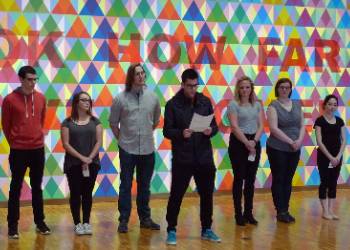101 Online Professor Sherri Hoffman (session 1)
Course Description: Flash Fiction is the study of the shortest form of fiction. Its essence is an exactness of language. Its form is more defined by conciseness than a specific word count. At its best, it is fine-tuned storytelling honed to a single page or a few short lines in which universal emotion and the strength or frailties of being human are revealed. The workshop structure allows for an active discussion of student work. Readings are a diverse selection of authors as examples of craft and the diversity of voice. Supporting craft materials include essays, film, and excerpts of craft books, which invite the study of language and story reimagining our world in a quick flash.
Readings: Steering the Craft by Ursula Le Guin; New Micro: Exceptionally Short Fiction (Paperback), eds. James Thomas, Robert Scotellaro. Additional materials will be provided on D2L or online.
Assignments: Over the course of the semester, students will give a class presentation, write workshop reviews, and produce a portfolio of flash fiction pieces.
Required reading:
Steering the Craft: A 21st-Century Guide to Sailing the Sea of Story, Author: Ursula K. Le Guin, $15.00, Paperback: 160 pages, Publisher: Mariner Books; Reprint edition (September 1, 2015), Language: English, ISBN-10: 0544611616, ISBN-13: 978-0544611610
New Micro: Exceptionally Short Fiction, Editors: James Thomas, Robert Scotellaro, $11.00, Paperback: 288 pages, Publisher: WW Norton & Company (August 28, 2018), Language: English, ISBN-10: 0393354709, ISBN-13: 978-0393354706



